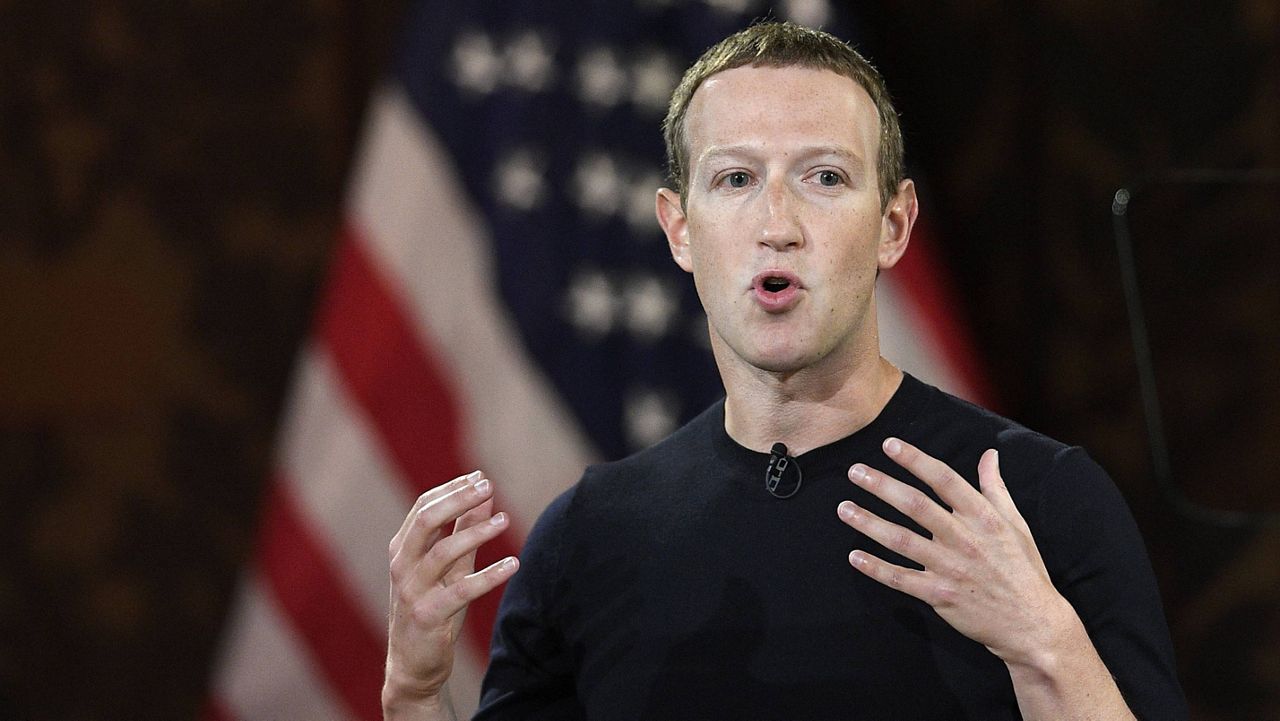NATIONWIDE — New York Attorney General Letitia James is leading a multistate lawsuit against Facebook, what she called a "bipartisan coalition of 48 attorneys general in a lawsuit against Facebook to end its illegal monopoly."
The suit was filed Wednesday following reports that such litigation was expected.
"We are taking action to stand up for the millions of consumers and many small businesses that have been harmed by Facebook’s illegal behavior," James wrote on Twitter, claiming that the social media giant "has used its monopoly power to crush smaller rivals and snuff out competition."
James alleged Facebook had a practice of opening its site to third-party app developers, then abruptly cutting off developers that it saw as a threat. The lawsuit — which includes 46 states, Guam and the District of Columbia — accuses Facebook of anti-competitive conduct and using its market dominance to harvest consumer data and reap a fortune in advertising revenues.
The Federal Trade Commission has also sued Facebook, alleging that "the company is illegally maintaining its personal social networking monopoly through a years-long course of anticompetitive conduct."
The FTC said that it is "seeking a permanent injunction in federal court that could, among other things: require divestitures of assets, including Instagram and WhatsApp."
James said the coalition worked collaboratively with the FTC but noted the attorneys general conducted their investigation separately. The are confident they will succeed, James said, pointing to previous break-up actions, such as AT&T, as possible precedent.
Facebook is the world’s biggest social network with 2.7 billion users and a company with a market value of nearly $800 billion whose CEO Mark Zuckerberg is the world’s fifth-richest individual and the most public face of Big Tech swagger.
The lawsuits allege that Facebook has used its dominance to buy or crush its social networking competitors. At the heart of the complaints are the company’s 2012 purchase of Instagram, a photo-sharing app, for $1 billion and the acquisition of the messaging app WhatsApp for $19 billion in 2014.
“Personal social networking is central to the lives of millions of Americans,” Ian Conner, Director of the FTC’s Bureau of Competition, said in a statement. “Facebook’s actions to entrench and maintain its monopoly deny consumers the benefits of competition. Our aim is to roll back Facebook’s anticompetitive conduct and restore competition so that innovation and free competition can thrive.”
Despite reviewing and approving Facebook’s purchases of Instagram and WhatsApp, the FTC opened an antitrust investigation into the company in 2019 amid concerns over its power in the marketplace.
In a statement, Facebook said it is "reviewing the complaints" adding that the company "will have more to say soon."
"Years after the FTC cleared our acquisitions, the government now wants a do-over with no regard for the impact that precedent would have on the broader business community or the people who choose our products every day," the company's statement concluded.
Facebook's Jennifer Newstead, Vice President and General Counsel for the social media giant, called the cases "revisionist history" in a statement.
"Antitrust laws exist to protect consumers and promote innovation, not to punish successful businesses," Newstead said. "Instagram and WhatsApp became the incredible products they are today because Facebook invested billions of dollars, and years of innovation and expertise, to develop new features and better experiences for the millions who enjoy those products. The most important fact in this case, which the Commission does not mention in its 53-page complaint, is that it cleared these acquisitions years ago."
"The government now wants a do-over, sending a chilling warning to American business that no sale is ever final," she continued. "People and small businesses don’t choose to use Facebook’s free services and advertising because they have to, they use them because our apps and services deliver the most value. We are going to vigorously defend people’s ability to continue making that choice.”
In testimony before the House Judiciary Committee in July, CEO Mark Zuckerberg defended Facebook’s practices while arguing there is still plenty of competition in the social media landscape.
"The most popular messaging service in the U.S. is [Apple's] iMessage," he said. "The fastest-growing app is TikTok. The most popular app for video is YouTube. The fastest growing ads platform is Amazon. The largest ads platform is Google. And for every dollar spent on advertising in the U.S., less than 10 cents is spent with us."
In separate testimony before the Senate Judiciary Committee in November, Zuckerberg said Facebook did not view Instagram as a competitor when it purchased the company because it was a photo-sharing app, not a multipurpose social platform.
The Associated Press contributed to this report.



